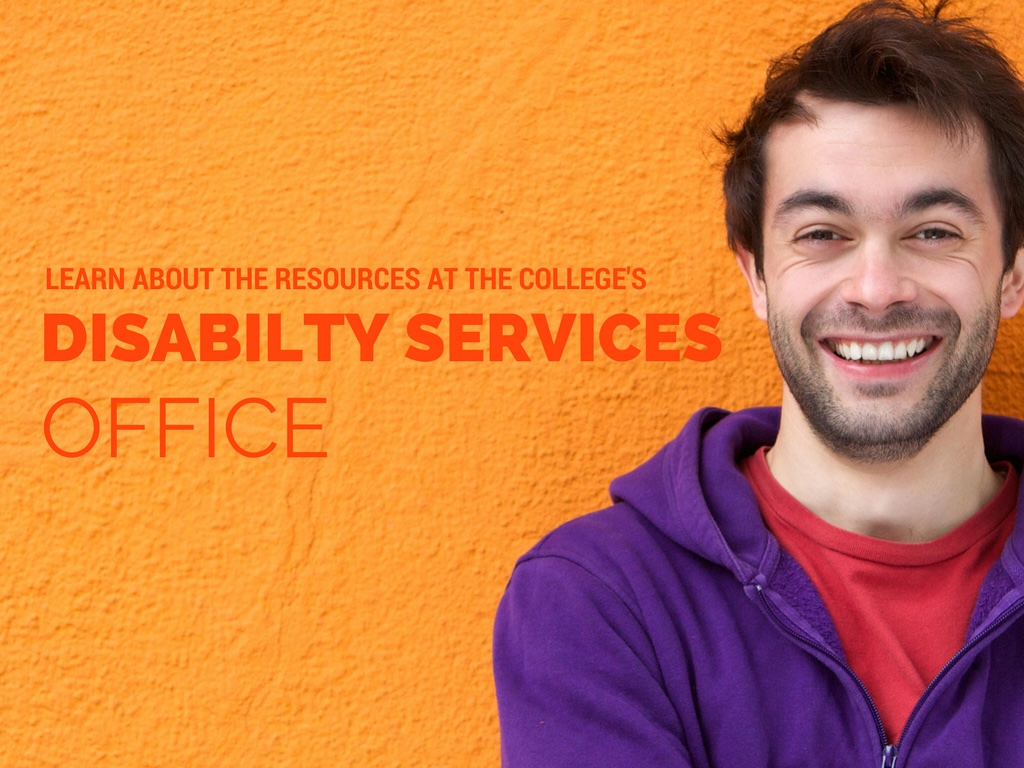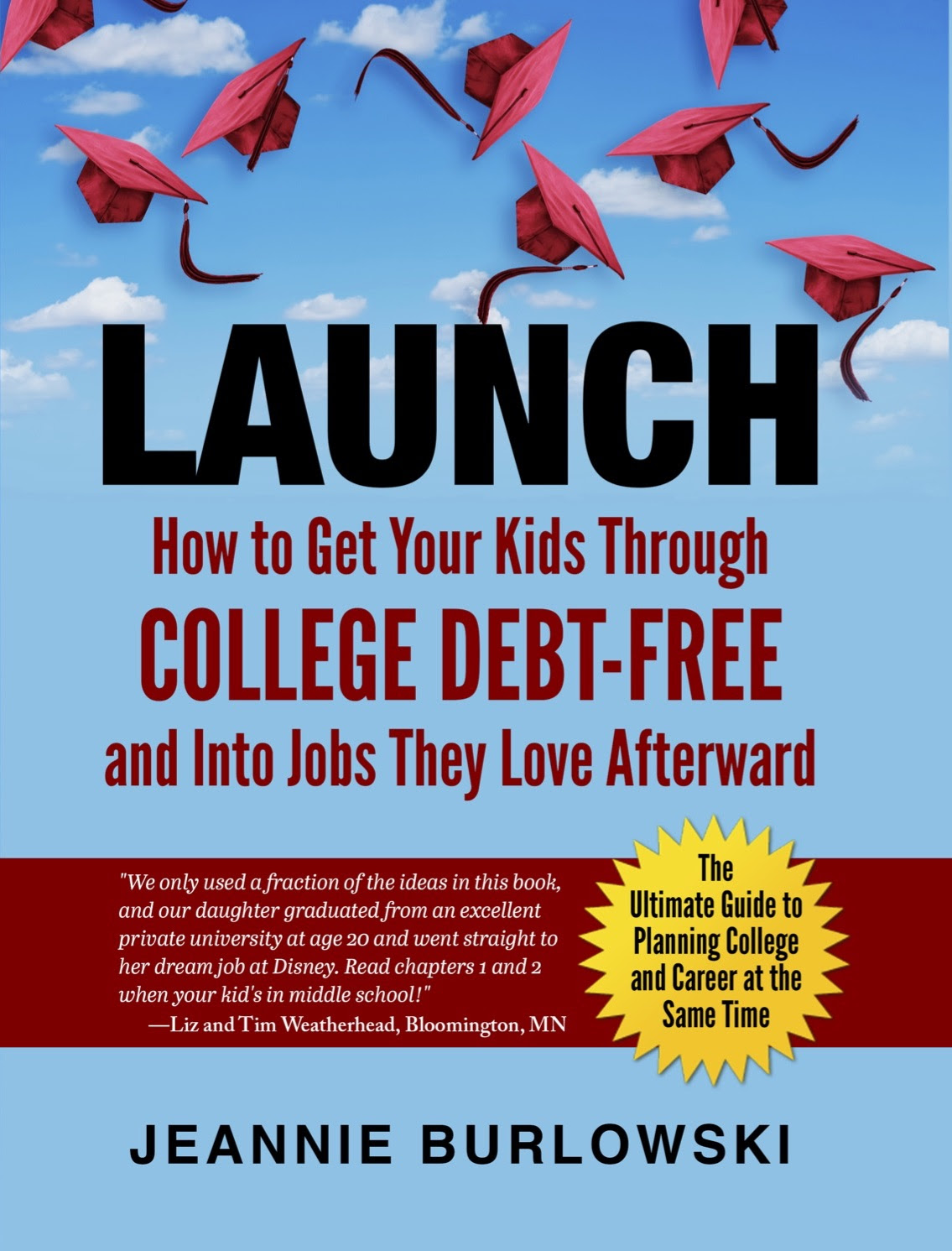Are you parenting a teen or a college student with a disability of any kind? If you are, you need to know about the wonderful services offered by the disability services office on your child’s college campus.

Whether your child has a physical disability, a learning disability, a mental health disability, or any other kind of disability, the college’s disability services office will provide extraordinary, kind, supportive help.
“When should we first contact the college disability services office?”
I suggest that you and your child, together, contact the college’s disability services office for the first time early in the summer before your child starts college.
Or as soon as possible after that.
Be a supportive presence for your son or daughter as he or she tells the disabilities services staff, “Here’s who I am, and here’s what I deal with. Here’s what my situation could look like if things get bad for me. Here’s a list of things we know tend to be helpful for me. Can you tell me about the resources available for students in my situation?” Be open and honest. Make the disability services office your family resource.
I love it when students make this call while they’re still at home with their parents, but if it’s too late for that, it’s a call that can be made at any time.
Important: Get to get to know the disability services office’s staff before a crisis or problem hits.
Sometimes, when crisis hits, there can be so much jangling clamor in students’ brains that it can be difficult to figure out what resources are available. But if your son or daughter is already connected to and known by the disability services offices before crisis occurs, he or she will be able to get immediate, knowledgeable help.
If your child starts talking about dropping out of college, read the kind, compassionate article I’ve written on how parents can respond helpfully, here.
“What kind of help will the disability services office provide?”
More help than I can possibly list here. If your child struggles with taking notes in classes, note-takers can be provided. If your child struggles with anxiety, the disability services office can arrange for your child to have extended testing time or a quiet, distraction-free room to test in. The list of helpful accommodations and services goes on and on.
“What important step should we take while our child is still in high school?”
If your child has a disability, there’s a good chance he or she may qualify for some special accommodations while in college. (Longer time taking tests, for example.) The thing you need to know is that special accommodations are only available to college students whose disabilities have been documented through official channels. Your child’s high school IEP will not be sufficient for accessing accommodations in college—because the high school IEP expires on the date of your child’s high school graduation.
I strongly urge you to contact the special education staff at your child’s high school now, and ask this important question:
Can you get my child a complete battery of educational psychological evaluations, all properly signed by a licensed professional? We will need them in order to access all the disability accommodations he’ll need in college. And one other thing—can we please have these evaluations done at no charge to us?
In most states, school districts are required to say yes to this request, but you have to ask. Whatever you do, don’t wait to make this request. The latest point at which you can usually ask and get a yes is the beginning of the child’s senior year of high school. If you wait until after that point to make this request, you may be directed to a private educational psychological evaluator at an out-of-pocket cost to you of as much as $5,000.
If you’re parenting a young person with a disability of any kind, see the free video training I provide for you here:
The above session was originally provided to my TRIBE Members—a select group of parents and professionals who pay a tiny amount each month to get to meet with me online 11–12 times per year for special sessions and live Q&A. You can get on the waiting list to join my TRIBE Membership here.
This info is provided for you by Jeannie Burlowski, author of the book:
Important—> It’s a reference book, so nobody reads the whole thing cover to cover. Pick out what you need to read in it using the fast-paced, 10-minute video instructions here.
You can see hundreds of reviews of this book on Amazon by going to:
Read just one chapter of LAUNCH every 1–3 months while your child’s in middle school and high school, and you’ll know every viable strategy for debt-free college at exactly the right time to implement it.
And if your child’s already well past middle school? That’s OK; you can run to catch up. But the process of getting your kids through college debt-free goes more smoothly the earlier you start—especially if you’re not planning to save up any money to pay for college.
Let's you and I walk together toward the goal of debt-free college for your kids.
We can accomplish this no matter your current income level—even if your kids never get a single scholarship.
Your first step is getting regularly scheduled, free helpful articles from me—right in your email inbox. Quick, sign up here.
Do you have very specific questions for me about debt-free college and career for your kids?
My TRIBE Members get the most direct access to me—while feeling good that the pennies per day they spend on the TRIBE help me bring debt-free college strategy to families who could never afford to pay for it. Join my TRIBE Membership waiting list here. (The parent testimonials you'll see there are so encouraging!)
Who is Jeannie Burlowski?
Jeannie is a full-time academic strategist, podcast host, and sought-after speaker for students ages 12–26, their parents, and the professionals who serve them. Her writing, speaking, and podcasting help parents set their kids up to graduate college debt-free, ready to jump directly into careers they excel at and love. Her work has been featured in publications such as The Huffington Post, USA Today, Parents Magazine, and US News & World Report, as well as on CBS News.
Jeannie also helps students apply to law, medical, business, and grad school at her website GetIntoMedSchool.com. You can follow her on Bluesky @jburlowski.bsky.social.
No part of this article was written using AI.
This article was updated on July 24th, 2025.


